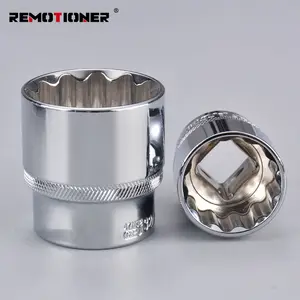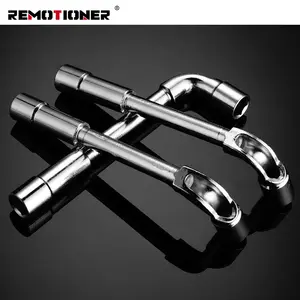Introduction to Socket Wrench Heads
Socket wrench heads are indispensable tools in the realm of mechanical maintenance and assembly. These small yet powerful attachments enable users to easily tighten or loosen fasteners, whether in an automotive setting, construction work, or home improvement projects. Designed to fit securely onto a wrench, socket heads are crafted from high-quality materials, ensuring durability and versatility for various applications. This guide delves into the different types, features, and methods for maximizing the use of socket wrench heads.
Types of Socket Wrench Heads
Socket wrench heads come in various styles, materials, and sizes to cater to diverse tasks. Understanding these types can enhance effectiveness in your projects.
- Standard Sockets: These are the most common and are used for general applications. Available in both metric and SAE sizes, they are ideal for standard fasteners.
- Deep Sockets: Featuring a longer profile, deep sockets can reach fasteners positioned deeper within components, making them essential for automotive repair.
- Impact Sockets: Designed to withhold high torque and stress, these sockets are typically used in conjunction with impact wrenches, perfect for heavy-duty tasks.
- Universal Sockets: These flexible heads can adapt to different fastener shapes, providing a versatile solution for various sizes and styles of nuts and bolts.
Function, Feature, and Design of Socket Wrench Heads
The design and functionality of socket wrench heads play a crucial role in their efficiency and ease-of-use.
- Socket Drive Size: Common sizes include 1/4", 3/8", and 1/2", which correspond to the handle or wrench size, ensuring the right fit for the job.
- Hex/Universal Drive: Some socket heads offer a hexagonal design that enables the attachment of different types of fasteners with the same tool.
- Material Composition: Typically made from chrome vanadium or chrome molybdenum steel, these materials provide resistance to corrosion and damage. Some sockets also feature a protective coating for added longevity.
- Knurling and Grip: Many sockets are designed with a knurled surface for enhanced grip and easier handling, particularly in tight spaces.
Applications of Socket Wrench Heads
Socket wrench heads are invaluable across various industries, highlighting their versatility and essential role in maintenance and assembly tasks.
- Automotive Repairs: Ideal for loosening and tightening nuts and bolts in engine compartments or wheel hubs, making them essential for mechanics and DIY enthusiasts alike.
- Construction Projects: Utilized extensively in building and carpentry, they help secure frames, fittings, and fixtures with precision.
- Industrial Machinery Maintenance: Vital for servicing equipment that requires frequent adjustment and repair, ensuring operational efficiency.
- Home Improvement: Commonly found in toolboxes, socket heads aid in assembling furniture, installing appliances, and other household tasks.
Advantages of Using Socket Wrench Heads
Utilizing socket wrench heads presents numerous benefits that enhance both the efficiency and outcome of any project.
- Time Efficiency: The simple-to-use design allows for quicker adjustment of fasteners compared to traditional wrenches.
- Versatility: A single socket set can handle an array of tasks across multiple applications, reducing the need for numerous tools.
- Improved Torque Application: With the design tailored for optimal leverage, socket wrench heads provide greater torque without the risk of stripping fasteners.
- Durable Construction: The robust materials used in manufacturing ensure that socket heads react well under stress, prolonging tool lifespan and reliability.
















































